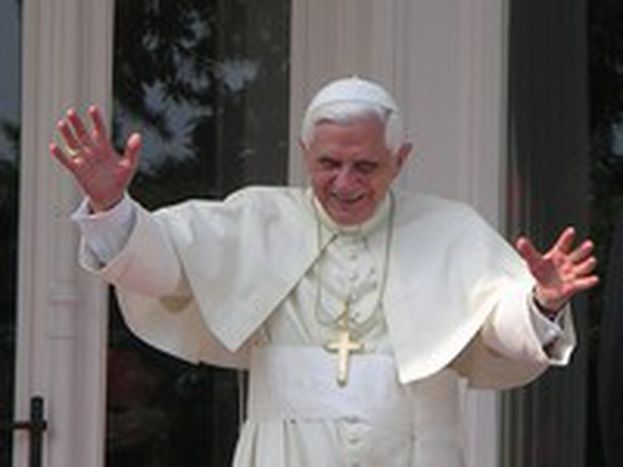
Stepping out of the shadows: Benedict XVI in Poland
Published on
Translation by:
Natalia SosinMay 25 will see the new Pope’s first visit to Poland, where John Paul II’s legacy remains strong
2 April 2005. John Paul II died and the whole of Poland witnessed it. The country stopped, as the television relayed to us the steadily worsening condition of the Pope, minute by minute. During the period of his death, both public and private broadcasters stopped showing commercials. Even Polish MTV stopped broadcasting for a couple of days. Polish journalists coined the new term ‘the generation of John Paul II’ to name those young people who did not know a world without the Pope in it.
Benedict XVI has a lot to live up to.
Superficially, things could not be more different. John Paul II's first visit to Poland in 1979 came when Poland was still under Communist rule, and his voice was a beacon of hope here in his home country. In contrast, Benedict XVI’s visit has come under something of a cloud.
A point to prove
Perhaps aside from Malta, Poland is the most Catholic country in Europe, and the visit of the new Pope will nonetheless be a momentous event. Polish commentators have been talking about it as an opportunity for the new Pope to emerge from out of the shadows of John Paul II and be taken into the hearts of the Polish people. Roman Giertych, the minister of education and leader of the right wing nationalist party LPR (League of Polish Families), has even decided to cancel school on Friday in the hope children will appreciate the importance of the occasion.
Given this crucial possibility, certain recent events have made this visit more difficult than it needed to be. Michal Czajkowski, one of Poland’s most respected priests, has recently been disclosed as having collaborated with the Communist security services for 24 years. This included informing on Jerzy Popieluszko, the famous priest of Solidarity brutally murdered by the regime. While Czajkowski has resigned from all official functions, this incident has brought up again the less than perfect history of the church in Poland.
Further problems are likely to occur with Benedict XVI’s intended visit to Auschwitz on the 28 May. Some Jewish groups have already registered their discontent that he will pray in German at the site. However, the Polish population has seemed unconcerned by the controversy, preferring to see the visit to as an opportunity to unite in Catholic faith.
The Pope uncensored
But for those looking at the visit from outside Poland, the hardest thing to understand has been the apparent censorship of TV commercials, along with the total ban on alcohol sales, which will be in force in each city the Pope visits. United Press wrote "Poland censors to ban vulgarity for pope visit." During the visit, the Polish public won’t be able to see advertisments with erotic content, nor ads for tampons and toilet paper. The foreign media has presented this as a self-censorship that rubs uncomfortably against the living memory of Communist censorship.
Things are seen very differently in Poland. Zbigniew Badziak, the head of advertising at TVP, a public TV channel, said commercials could interfere “with the sublime character of transmitted events.” In Poland it has nothing to do with censorship; it is a sign of respect for the Pope.
Ultimately, the success of the visit of the new Pope will depend on the extent to which he can step out of the shadow of his predecessor, and become a Pope taken into the hearts of the Polish people. Whatever happens, the television cameras will be following him. And there won’t be any commercials.
Translated from Benedykt XVI w Polsce



